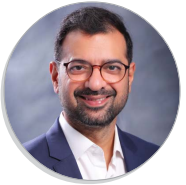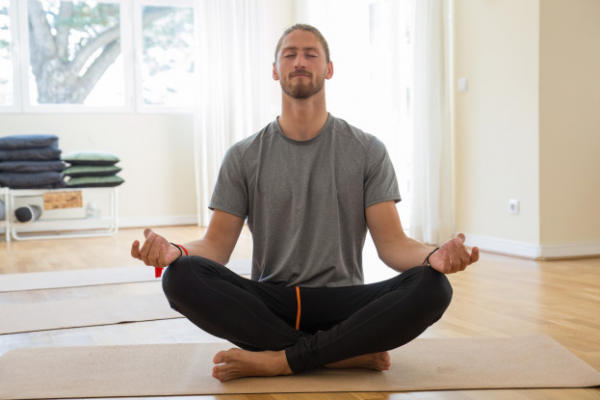There is little doubt that reflection improves one's decision-making ability. Through reflection, we are able to evaluate a situation objectively and cognitively with intuition adding the finishing touch.
The situation stood balanced on a knife’s edge. The negotiations with the union had broken off and the plant was on the verge of a shutdown. As the person heading the negotiations, I was feeling the pressure and there was an intense desire to act. I reached out to my mentor who had a counterintuitive and unexpected piece of advice – sit in a quiet place and reflect.
There is little doubt that reflection improves one’s decisionmaking ability. Through reflection, we are able to evaluate a situation objectively and cognitively with intuition adding the finishing touch. Several inventions and creative solutions to problems have materialised on reflection. The most classic example of this is Archimedes’ Eureka moment.
However, many of us find reflection difficult to practice. Human beings, by nature, are action-oriented. We are predisposed to act. The flight or fight response to perceived danger is our default even in less threatening situations.
Reflection is something that does not come naturally to most of us. We tend to react to situations instead of responding to them. Reflection is the difference between reaction and response. While there is merit in fast reaction in a life and death situation, the situations we mostly face in our work lives give us the opportunity to reflect and muster the appropriate response.
Therefore, it is imperative that we try and understand the process of reflection and evaluate a method that we could employ to embed our habits of reflection.
“Without reflection, we go blindly on our way, creating more unintended consequences, and failing to achieve anything useful.” – Margaret Wheatley
A mind workout
Reflection is like a workout for the mind. Like the way we use the gymnasium to train our body to become strong, supple, and functional, reflection is the place where we train our mind. And as there is a routine that one follows in the body gym, one needs to do the same for the mind gym. We shall use this analogy to develop the idea of reflection.
As one starts one’s exercise regimen with a warm-up to make the body receptive to the work out to follow, one must warm up the mind. And the most effective way to do this is to meditate. Meditation is a practice that trains the mind to be calm yet aware, sharp yet flexible, in the moment - whatever the distractions. A few minutes of meditation – centring – can really put you in a frame of mind to be open to different stimuli, receptive to divergent viewpoints and imaginative solutions. Ideally, meditation is a habit that one must cultivate in order to be adept at it. The time and energy that goes into the pursuit of a calm mind returns a multi-fold pay back.
The devil is in the Data
Data is the equipment of the mind gym. One cannot reflect without data. Data does not necessarily mean numerical data, but also observations. The process of reflection then moves data through three stages before the point of action. These are information, knowledge, and insights. Information is data that is relevant to the situation at hand, knowledge is information that one can use, and finally, insights is the knowledge that one gleans wisdom out of using one’s cognitive and intuitive abilities. This seems simple enough, but have we not seen numerous presentations that get lost in sheer data, mired in too much information, exulting in knowledge, and sorely lacking in insights?
The process is like a funnel. After acquiring data, one needs to ask the question, “what data is relevant to the current situation?” to distil it to information. Here, one needs to be ruthless to cast data aside that has little bearing to the topic. “Can we use this information? If yes, how?” is the sieve one uses to sift knowledge from information. Insight is the stage where we process knowledge at a cognitive level and then connect to our individual or collective intuition, which is really an accumulation of our experiences that reside in our unconscious, to arrive at key insights. Insight is the stage we need to attain before we can initiate meaningful action. How do we know if we have attained insights? One practical way is to ask the question, “So what does this knowledge tell us?”, to a point where we know that the answer is actionable.
The final stage of reflection is finding a sounding board that you trust. Reflection is essentially an individual activity. Thus, it is only logical that the output would be subject to all the cognitive biases that plague the human mind. It is, therefore, imperative that one challenges one’s results of one’s reflections with an intuitive and knowledgeable mind and play the devil’s advocate. One must be cautious though that in the eventuality of conflicting intuitive opinions, one should trust one’s gut as in the end, it is the person who carries the can whose gut finally matters.
The 3-Step stop
How do we develop effective reflection as a habit? One recommends three simple steps–
1. Allocate a time: While managing our back-to-back calls and meetings, we must earmark specific time for daily reflections. It would help immensely if we put this in our calendars so colleagues can see that we are busy in that time and wouldn’t schedule calls. Keeping a log of one’s reflection is also something that works with many successful professionals.
2. Allocate a place: Man is a creature of habit. We need to have familiar surroundings which the mind recognises intuitively as a place for reflection. It is important to keep the place neat, tidy and with as little clutter. Any object on the table which one is planning to use as a place for reflection will only distract. A physically clear workplace naturally facilitates a clear mind.
3. Decide a payoff: Decide a payoff in advance. As many experts on habit have reiterated, we need to have a positive payoff to make the habit stick. One can decide the payoff as something one enjoys at the end of reflection. In the end, the high one experiences after reflection is, in itself, a payoff. An alternative payoff may be required till one reaches this level.
I returned home from office, had an early dinner, and then retired to my study. I poured myself a glass of wine and reflected. I found a way out of the conundrum. I have been an ardent champion of reflection as a habit for leadership success ever since.
Through personal experiences, I am convinced that self-reflection is the most underused and underestimated skill that is used for success. It is a pre-requisite for managing our VUCA world. As Margaret Wheatley so aptly put it, “Without reflection, we go blindly on our way, creating more unintended consequences, and failing to achieve anything useful.” On reflection, one can only nod one’s head in vigorous assertion!

Has COVID-19 forever changed the way we live and work?
Trending
-
SBI General Insurance Launches Digital Health Campaign
-
CredR Rolls Out 'Life Happens' Leave For Its Employees
-
Meesho Announces 30-Week Gender-Neutral Parental Leave Policy
-
Microsoft Unveils Tech Resilience Curriculum To Foster An Inclusive Future
-
60% Indian Professionals Looking For Job Change Due To COVID: Survey
-
SpringPeople And Siemens Collaborate For Digital Transformation Push
-
86% Professionals Believe Hybrid Work Is Essential For Work Life Balance: Report
-
Almost 1 In Every 3 People's Personal Life Affected Due To Work Stress
-
Meesho Rolls Out Reset And Recharge Policy For Employees
-
80% Of Talent Leaders & Academics Say Pandemic Changed Skill Needs For Youth: Report
-
Hero Electric Rolls Out 'Hero Care' Program For Employees
-
Human Capital In Collaboration With ASSOCHAM Hosts Virtual Conference
-
IKEA India, Tata STRIVE Collaborate To Create Employability And Entrepreneurship Opportunities
-
SAP India, Microsoft Launch Tech Skilling Program for Young Women
-
DXC Technology, NASSCOM Collaborate For Employability Skills Program
-
Lenskart To Hire Over 2000 Employees Across India By 2022
-
Mindtree Launches Learn-and-Earn Program
-
Tata AIA Extends 'Raksha Ka Teeka' To Its Employees
-
Swadesh Behera Is The New CPO Of Titan
-
NetConnect Global Plans To Recruit 5000 Tech Professionals In India
-
Hubhopper Plans To Hire 60% Of Indian Podcasters By 2022
-
Corporate India Needs More Women In Leadership Roles: Report
-
Aon to Invest $30 Million and Create 10,000 Apprenticeships by 2030
-
Tech Mahindra Launches ‘Gift a Career’ Initiative for Upskilling of Youth
-
40% Women Prefer Flexible Working Options in Post-COVID World: Survey
-
3 out of 4 companies believe they can effectively hire employees virtually: Report
-
Vodafone , CGI and NASSCOM Foundation launch digital skills platform
-
Odisha: Bank, postal employees to deliver cash for elderly, differently-abled persons
-
Skill India launches AI-based digital platform for "Skilled Workforce"
-
Hiring activity declines 6.73% in first quarter: Survey
-
70% startups impacted by COVID-19 pandemic
-
Bajaj Allianz Life ropes in Santanu Banerjee as CHRO
-
Over 70 Percent MSMEs look at cutting jobs to sustain businesses
-
93 Per Cent employees stressed about returning to office post-lockdown
-
Johnson & Johnson India announces family benefits for same gender partners
-
Indian firms turning friendly towards working mothers
-
Welspun India names Rajendra Mehta as new CHRO
-
Wipro partners with NASSCOM to launch Future Skills platform



Human Capital is niche media organisation for HR and Corporate. Our aim is to create an outstanding user experience for all our clients, readers, employers and employees through inspiring, industry-leading content pieces in the form of case studies, analysis, expert reports, authored articles and blogs. We cover topics such as talent acquisition, learning and development, diversity and inclusion, leadership, compensation, recruitment and many more.
Subscribe Now












































Comment